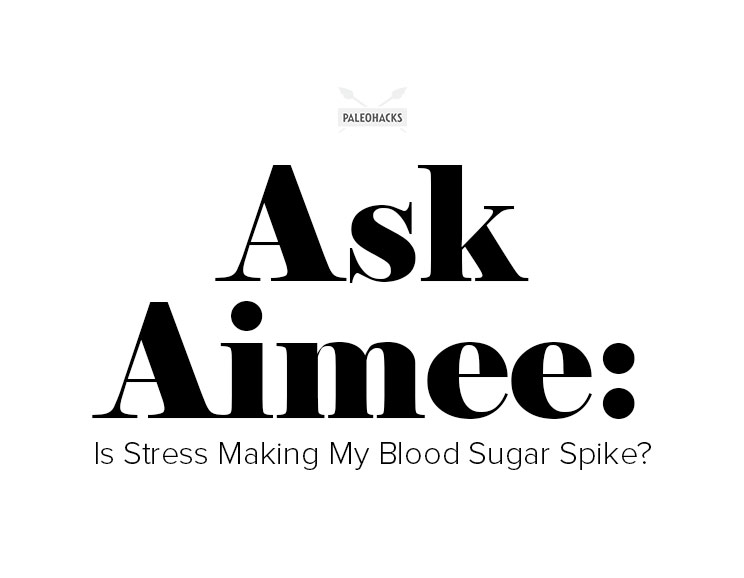“I’m not diabetic, but my doctor says my blood sugar is a mess, and my stress levels are not helping the situation. Am I doomed to get diabetes?”
Dear Reader,
If you Google “stress and blood sugar”, you’ll find over 140 million results. That’s because these two things go hand in hand – and getting them under control together is vital for your health.
Suffering from Diabetes or blood sugar imbalance?
Grab our FREE Diabetes Guide & 7 Day Meal Plan here!
Blood sugar – also referred to as glucose – is the simple sugar that fuels the body. When we eat carbohydrates, they are broken down into those simple sugars by the hormone insulin, to be used as a steady fuel supply for the body until the next meal comes around.
The body is all about keeping things balanced, but unchecked stress can throw a monkey wrench into the whole process.
How Stress Raises Glucose
Problems arise when we eat too much food that breaks down into glucose, overwhelming your body’s ability to process it and leaving higher levels circulating in the blood. This is known as “high blood sugar”. Another type of issue can result from insulin resistance, where the body doesn’t respond to insulin as it should. (1) This leaves the body struggling to make enough insulin to compensate for the lack of response.
Even if you eat perfectly, depending on how your body handles stress, you could be at risk for developing type 2 diabetes or metabolic syndrome.
While both types of problems are associated with prediabetes, metabolic syndrome, and type 2 diabetes, insulin resistance in particular is associated with physiological stress, or the “fight-or-flight” response. When you’re facing what your body interprets as a threat – whether it’s a physical altercation or a meeting presentation that you’re stressed over – it increases insulin resistance to leave more glucose in the blood to fuel your fight-or-flight response. The problem is that the brain can’t distinguish between an imminent threat and something that’s been ongoing for months.
Animal studies show that acute and ongoing stress is enough of a trigger to lead to rapid development of insulin resistance, independent of your dietary intake. (2) Even if you eat perfectly, depending on how your body handles stress, you could be at risk for developing type 2 diabetes or metabolic syndrome. This is because when the body senses a threat, it can mobilize on its own, regardless of how much glucose you eat.
When you’re under stress, adrenaline levels rise and the liver releases stores of glucose to keep the energy flowing so that you can fight or flee. Even if you eat a low-carb diet, and even if you are not diabetic, you can end up with chronically elevated glucose levels simply because your brain, adrenal glands, and liver are trying to save you from danger.
If stress continues unchecked for too long, you’ll likely experience a cascade of other symptoms that go well beyond insulin resistance. Sometimes we know we’re stressed, but often, we are unaware that we’re stuck in a cycle of chronic stress.
Symptoms can include:
- Headaches (3)
- Insomnia (4)
- Acne (5)
- Chronic pain (6)
- Digestive problems (7)
- Changes in appetite (8)
- Weight gain (9)
- Constipation (10)
- Reduced immunity and more frequent infections (11)
- Fatigue (12)
- Depression (13)
- Decreased sex drive (14)
How to Lower Stress Levels

When mental stress makes us feel physically feel ill, it’s time to talk to your doctor. Research shows that depression and anxiety are rooted in stress and inflammation the same way that other chronic disorders are (15) Our genes determine how our bodies respond to stress loads, and some are more prone to anxiety and depression where others might see increased blood pressure, weight, or digestive issues. (16) You might also want to consider working with a therapist to address chronic stress levels.
In the meantime, try lowering the physical effects of stress on your body, including high blood sugar, with any of these stress-busting tips: (17)
- Sleep: The more you sleep, the better your body handles the effects of stress. (18)
- Exercise: This reduces insulin resistance and helps the body cope with stress. (19)
- Yoga: A regular practice will lower stress and improve your body’s resilience. (21)
- Acupuncture: Acupuncture can minimize the physical effects of stress in the body. (22)
- Prebiotics: Eat the right foods to support the body during times of stress. (23)
- B-vitamins: They can help support the nervous system. (24)
- Vitamin D: Get enough vitamin D to lower blood sugar and help your body cope with stress. (25)
Alleviating the mental burden of stress will help your body naturally address the physical symptoms, like headaches, digestive problems, blood pressure, and yes – glucose levels. (26)
How to Track Progress
Just because you feel stressed doesn’t automatically mean that your glucose is elevated. Most doctors check fasting glucose and insulin levels as part of yearly wellness visits. If you’re concerned about your levels, ask your doctor to check your insulin, glucose, and hemoglobin A1C, which is a measure of the average glucose levels for the past three months. Based on these results, you’ll at least get a snapshot of how your body physiologically copes with stress.
You can also use a glucose meter at home to check your fasting blood sugar. Most insurance companies cover these for people who are diagnosed with diabetes, so if you’re checking it on your own, you’ll need to purchase a glucose meter, testing strips, and lancets. (You use the lancet to prick your finger to draw a drop of blood, and then use the test strip to analyze the results.) Normal fasting glucose should be between 70 and 100 mg/dL. (27) A level of 100 to 125 is considered to be “prediabetes”, and can also be indicative of stress levels or other underlying physiological factors. If your fasting glucose comes back at 126 or higher two separate times, it’s considered to be diabetic.
If you self-check your glucose and your levels come back at 101 or higher, it’s time to check in with your doctor to see what’s going on. They might run additional tests to rule out diabetes or to uncover other signs of stress, like checking cortisol or inflammation levels.
The Bottom Line
Stress is a destructive force, especially when it goes unchecked for a long period of time. If you’re dealing with something that is keeping you stressed out, it’s time to get help from your care team. We live in a perpetually stressed out culture. A willingness to recognize you need to slow down and reevaluate your lifestyle is the first step to healing and improving your health.
Talk soon,
Aimee McNew, Certified Nutritionist, MNT
(Discover More: Ask Aimee – Can CBD Oil Soothe PMS and Menopause?)



 Irresistibly Cheesy Cauliflower Chips
Irresistibly Cheesy Cauliflower Chips







Show Comments